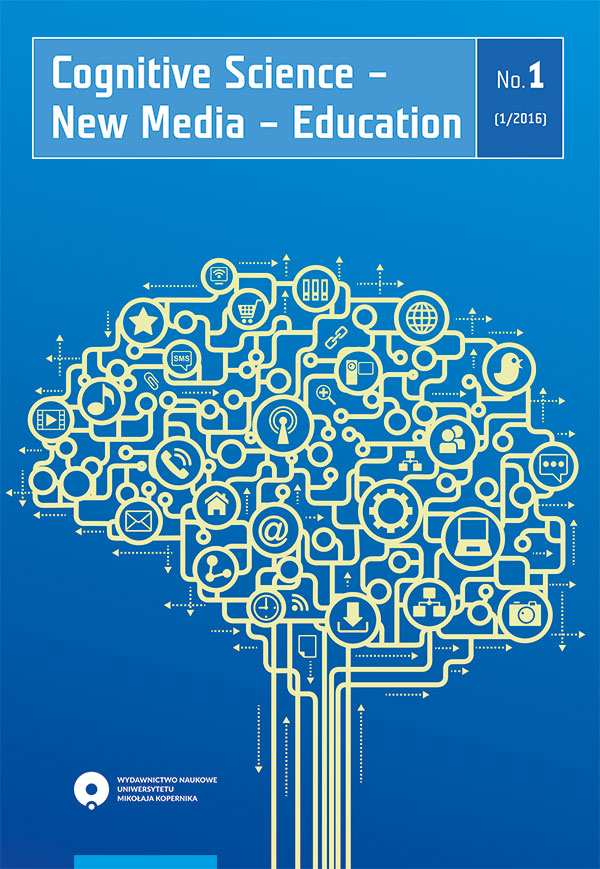Dynamics of Learning Motives and Barriers in the Context of Changing Human Life Roles
DOI:
https://doi.org/10.12775/CSNME.2016.002Keywords
learning motives learning, barriers, life rolesAbstract
This paper promotes a theoretical discussion that focuses on the motives and barriers that make impact on adults learning as well as on their dynamics related to the change of social roles. The adult learning motives and barriers change and vary according to the prevailing social roles at different periods of one’s life. This dynamics of adult learning motives and barriers is mostly influenced by the importance and compatibility of acquired social roles, responsibility areas and spaces of a person and other factors. The qualitative data was gathered in March – April 2016 in Kaunas, Lithuania. The sample consisted of 30 narratives, written by informants, aged 35 to 65 years that were participating in professional training courses. There has been prepared 30 self-reflections that were analysed using content analysis. The analysis of empirical data shows that external learning motives and barriers prevail in the period when an individual is active in the labour market while the personal motives remain overshadowed. However, personal barriers prevail in the expression of learning barriers. This is influenced by the society’s attitude towards the performance of pupil and student roles and the value attitudes of surrounding people that partially control it.References
Chao Jr. R. Y. (2009), Understanding the Adult Learners’ Motivation and Barriers to Learning. Educating the Adult Educator: Quality Provision and Assessment In Europe. Conference Proceedings, European society for research on the education of adults (ESREA), p. 905-916.
Čyžiūtė J. (2007), Veiklios moters socialiniai vaidmenys šeiminės partnerystės kontekste, „Filosofija. Sociologija“, 18(2), p. 55-63.
Drucker P. (1993), Post-Capitalist Society. NY. Harper Business.
Gage N. L., & Berliner D. C. (1992), Educational Psychology (5th ed.). Boston: Houghton Mifflin.
Howe K. R., & Moses M. S. (1999), Ethics in educational research. Review of research in education, 24, p. 21-59.
Huberman M. A., Miles M. B. (1994). Qualitative Data Analysis. A Sourcebook of New Methods, Newbury Park, Sage Publications.
Kilroy D. A. (2004), Problem based learning, “Emergence Medicine Journal”, 21(4), p. 411–413.
Knasel E., Meed J., & Rossetti A. (2000), Learn for your life: a blueprint for career-long learning. Financial Times Prentice Hall.
Labov, W., & Waletzky, J. (1997). Narrative analysis: Oral versions of personal experience.
Marks S. R., & MacDermid S. M. (1996), Multiple roles and the self: A theory of role balance, “Journal of Marriage and the Family”, 2, p. 417-432.
McCrindle M. (2014), The ABC of XYZ. Understanding the Global Generations, McCrindle Researche Pty Ltd.
Niles S. G., Herr E. L., & Hartung P. J. (2002), Adult career concerns in contemporary society, Adult career development: Concepts, issues and practices, p. 2-18.
Psichologijos žodynas (1993), Vilnius: Mokslo ir enciklopedijų leidykla.
Ramsay J., & Sorrell E. (2007), Problem-Based Learning: An Adult-education-oriented Training Approach For SH&E Practitioners, “Professional Safety”, 52(9), p. 41-47.
Rubenson K. (2011), Adult Learning and Education, Elsevier Ltd.
Savickas M. L., Nota L., Rossier J., Dauwalder J. P., Duarte M. E., Guichard J., Soresi S., Van Esbroeck R., Van Vianen A. E. (2009), Life designing: A paradigm for career construction in the 21st century, “Journal of vocational behaviour”, 75(3), p. 239-250.
Sogunro O. A. (2015), Motivating Factors for Adult Learners in Higher Education. “International Journal of Higher Education”, 4(1), 22-37.
Stanišauskienė V. (2007), Gyventojų įtraukimas į besimokančio miesto vystymą, Kaunas: Technologija.
Stipek D. J. (2002), Motivation to learn: From theory to practice (4th ed.), Boston: Allyn & Bacon.
Super, D. E. (1980), A Life-span, Life-space Approach to Career Development, „Journal of Vocational Behavior“, 16, p. 282-298.
Super D. E. (1990), A Life-Span, Life-Space Approach to Career Development, [in:] Career Choice and Development, eds. Brown, D. Brooks L. & Associates, San Francisco: Jossey-Bass, p. 197-261.
Super D. E., Savickas M. L., & Super G. M. (1996), The life-span, life-space approach to careers, [in:] Career choice and development, eds. D. Brown & L. Brooks, p. 121-170.
Super D. E., & Sverko B. E. (1995), Life roles, values, and careers: International findings of the Work Importance Study. Jossey-Bass.
Trivette C. M., Dunst C. J., Hamby D. W., & O’herin C. E. (2009), Characteristics and consequences of adult learning methods and strategies, “Winterberry research syntheses”, 2(2), p. 1-33.
White J. M., & Klein D. M. (2002), Family theories: Understanding families, Thousand Oaks, CA: Sage Publications.
Downloads
Published
How to Cite
Issue
Section
Stats
Number of views and downloads: 668
Number of citations: 0



